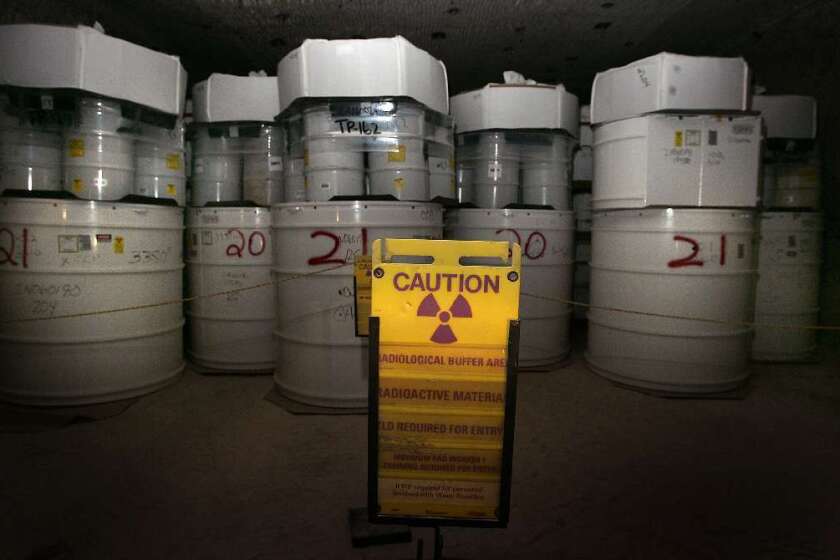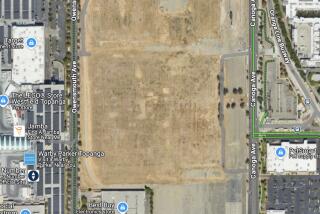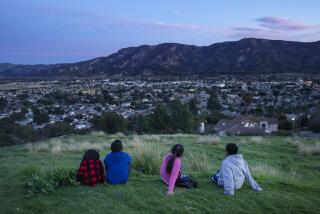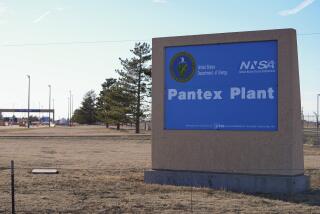Discovery of radioactive liquid pauses work at U.S. nuclear dump in New Mexico
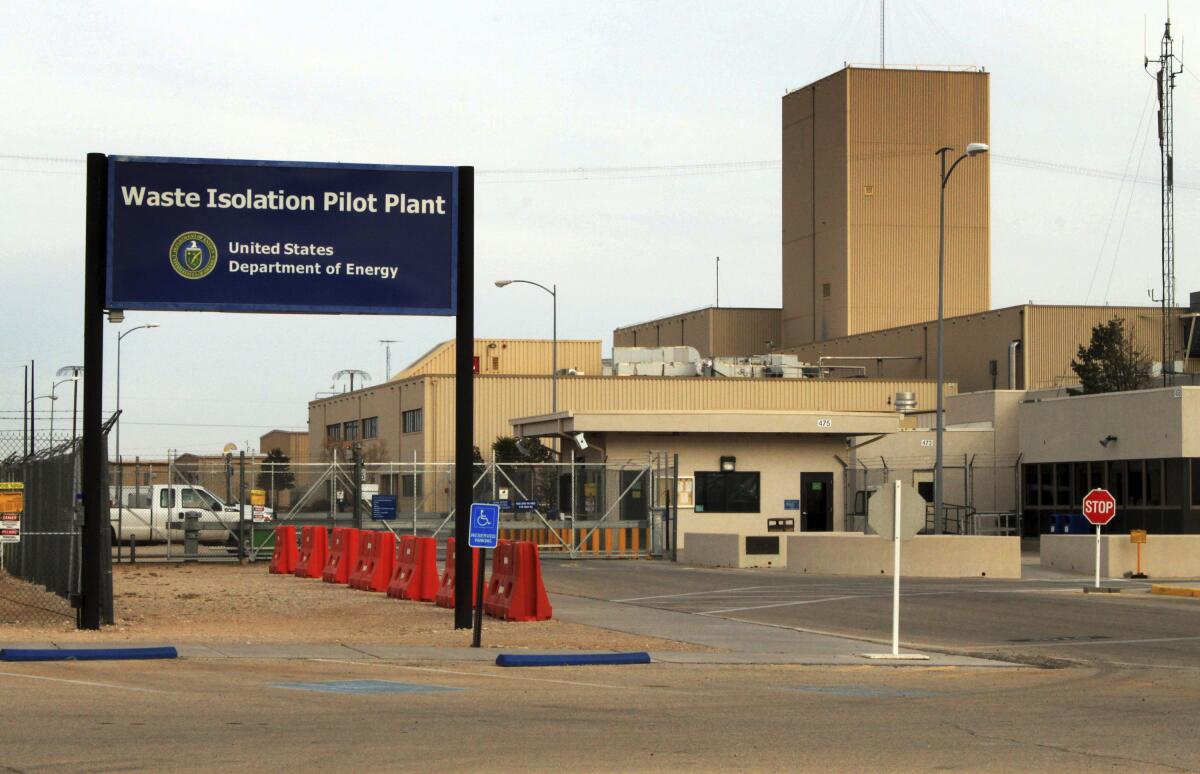
ALBUQUERQUE — An area at the U.S. government’s nuclear waste repository in southeastern New Mexico was evacuated over the weekend after workers handling a shipping container discovered a small amount of radioactive liquid inside it.
There was no indication of airborne contamination and testing of workers’ hands and feet turned up no contamination after the discovery was made late Saturday in a bay where containers are processed before being taken underground for disposal, officials said in a statement.
“The event at the site has been secured. There is no risk of radiological release and there is no risk to the public or the environment,” plant officials said in their most recent statement, issued late Saturday.
It wasn’t immediately clear where the liquid came from and which government facility had packed and shipped the waste. Bobby St. John, a spokesman for the contractor that manages the facility for the federal government, said Monday that more information would be provided later.
The repository is the backbone of a multibillion-dollar cleanup program that involves tons of Cold War-era waste from federal labs and defense-related sites around the country.
The waste — remnants of decades of nuclear research and bomb making — typically consists of lab coats, gloves, tools and debris contaminated with plutonium and other radioactive elements.
Independent federal investigators last month raised concerns about whether cost overruns and missed construction deadlines will continue at the Waste Isolation Pilot Plant.
When a drum containing radioactive waste blew up in an underground nuclear dump in New Mexico two years ago, the Energy Department rushed to quell concerns in the Carlsbad desert community and quickly reported progress on resuming operations.
A multimillion-dollar project is underway at the underground facility to install a new ventilation system so that full operations can resume, following a radiation leak in 2014 that forced the repository’s closure for nearly three years and led to major policy overhauls.
The container that caused that release had been inappropriately packed at Los Alamos National Laboratory in northern New Mexico.
Operations had to be reduced after the waste plant reopened in 2017 because areas of the facility were contaminated and airflow needed for mining and disposal operations was limited.
It was unclear Monday whether operations had resumed in the area where shipments are processed or what plans were in place to ensure worker safety.
The repository was carved out of an ancient salt formation about a half-mile below the ground because officials say that the shifting salt will eventually entomb the radioactive waste.
Its current footprint includes eight sections, which the U.S. Energy Department estimates will be filled in 2025.
State regulators are weighing a permit change that some critics have said could lead to expanded repository operations. A decision is expected later this year.
More to Read
Sign up for Essential California
The most important California stories and recommendations in your inbox every morning.
You may occasionally receive promotional content from the Los Angeles Times.
